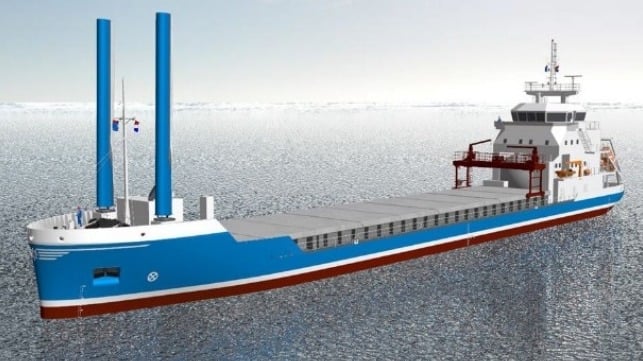Dutch Project to Design Liquid Hydrogen Powered Bulk Carrier

A new project launched by a consortium of Dutch companies and supported by the government is focusing on what they are calling the world’s first zero-emission general cargo ship powered by liquid hydrogen. According to the project organizers, this initiative is a key pillar of the Maritime Masterplan, setting a new standard for decarbonizing European maritime logistics.
The project which is being led by the Dutch Innovation Company (Nederlandse Innovatie Maatschappij or NIM) focuses on designing, constructing, and demonstrating a hydrogen-powered cargo vessel that will operate in the North Sea and beyond. Managed by Van Dam Shipping, the ship is designed to transport bulk goods, eliminating harmful emissions and redefining the future of sustainable shipping.
“By integrating hydrogen technology with digital innovation, we are proving that zero-emission shipping is not just a vision—it is an achievable reality,” says Sander Roosjen, CTO at NIM.
At the heart of the H2ESTIA Project is its integrated approach to hydrogen-powered propulsion. The vessel will be equipped with a newly designed cryogenic hydrogen storage and bunkering system, enabling safe handling and storage of liquid hydrogen at extremely low temperatures. A hydrogen fuel cell system together with batteries will provide primary propulsion, delivering clean power.
To further enhance energy efficiency, the ship will incorporate wind-assisted propulsion and waste heat recovery solutions, reducing hydrogen consumption. Digital twin technology will create a virtual model of the ship, allowing for real-time monitoring, operational optimization, and enhanced safety measures.

that matters most
Get the latest maritime news delivered to your inbox daily.
The project the organizers said is set to demonstrate technological readiness and economic viability, ensuring such vessels can be commercially deployed. It also addresses major challenges such as the certification of hydrogen systems, risk management, and crew training, paving the way for the safe integration of hydrogen technology into maritime operations.
The H2ESTIA Project is supported by a consortium of leading maritime and technology firms, TNO, MARIN, the University of Twente, Cryovat, EnginX, Encontech, classification society RINA, and the Dutch Ministry of Infrastructure and Water Management.
